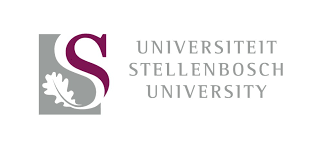
STELLENBOSCH UNIVERSITY.

Cannabis Science, Inc. announces the signing of a Collaboration Research Agreement (CRA) with the University of Stellenbosch, one of the oldest and most prestigious universities in South Africa. Cannabis Science and Stellenbosch University will jointly develop and investigate the use of Cannabinoids to treat chronic pain disorders and other critical/chronic indications.
“We are excited to bring Stellenbosch University on board, this is our first and most important step to developing cost effective drugs using Cannabinoids in Africa. Obviously, the need is critical across the whole Continent; we can make a difference, and we certainly will. This initial work program will allow us to set stage and do the ground work, identify cultivation/grow locations, volume and diversity requirements amongst protocols to expand our drug development and economic development programs across the Continent in a very profound manner. Here we go!” stated Mr. Raymond C. Dabney, Cannabis Science Inc., President, CEO, and Co-Founder. “Our relationship with Stellenbosch University will enable Cannabis Science to continue to expand the Cannabis Science Global Consortium and increase our research and development efforts with stakeholders worldwide. More specifically, the Consortium will allow our Company to harness the collective expertise of our global partners to mobilize the resources to create cost effect drugs using Cannabinoids for the treatment of a variety of indications, including cancers, neurological conditions, pain management, PTSD, HIV/AIDS, and epilepsy among others.”
“Working with Stellenbosch University provides Cannabis Science access to South Africa, as well as other opportunities throughout Africa,” stated Dr. Allen Herman, Cannabis Science Inc., Chief Medical Officer (CMO) and the founding Dean of the South Africa National School of Public Health. “As Cannabis Science develops multi-center, clinical trial networks with cannabinoid drug development in Africa, we see institutions such as Stellenbosch University as important strategic partners. This new relationship is one of the outcomes of Cannabis Science’ African Initiative launched in 2016 and there is plenty more to come.”
The Cannabis Science Global Consortium is growing fast and strong. It is linking alternative drug research, education, and job creation with universities, foundations, corporations, and key individuals all looking to create a robust environment to share research, ideas, and other relevant information as a powerful influential team. The Consortium is implementing cutting-edge research programs to develop medicines and delivery mechanisms from bench-to-bedside in demographics with great medical needs, or with little or no basic resources, and other key embattled demographic areas. Cannabis Science expects to sign a few more significant Universities and other key establishments before it unveils the full program initiatives, tracking, and reporting functionality of the Consortium.
About Stellenbosch University
Stellenbosch University is one of the oldest Universities in South Africa, and is home to an academic community of 29,000 students (including 4,000 foreign students from 100 countries) as well as 3,000 permanent staff members (including 1,000 academics) on five campuses. Stellenbosch University runs a thriving research program involving both basic and clinical studies focusing on schizophrenia, anxiety disorders, posttraumatic stress disorder, fetal alcohol syndrome, neurodegenerative disorders, neuroAIDS, substance abuse, eating disorders and the intersection of psychiatric and other non-communicable disorders. Stellenbosch University’s research is directly geared at addressing the disease burden in South Africa. There is a global pain divide between developing and developed economies. Chronic pain is more common in developing countries, but treatment options are sparse. Our research will explore the value of cannabinoid treatment for a common cause of chronic pain where pain treatment options are limited.


